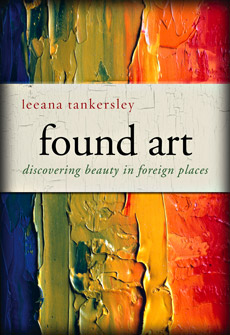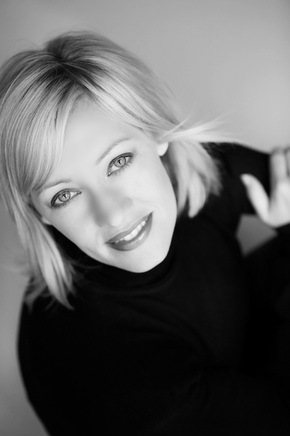I’m always looking for interfaith stories, and this one is beautiful. Healing words like Leanna’s are especially needed nowadays, when many of her fellow evangelical Christians are deeply suspicious of Islam. –JKR
“A Borrowed Abaya and a Middle Eastern Mosque”
When Steve and I had been married just eight days, we boarded a plane and disappeared to the other side of the world. We spent our first year of marriage in Bahrain, a tiny pin-dot island in the Persian Gulf, where he fulfilled his tour as the Operations Officer for a SEAL unit on the US base.
I went to the Middle East to accompany my Navy SEAL husband, but I quickly discovered Bahrain wasn’t going to be simply a tour of duty. From the minute I stepped off the plane and out into the hair-dryer humidity, I knew the obscure desert island would have strange gifts for me.
Most significantly was my time in the Grand Mosque. I was raised Christian. More specifically, Baptist, and it simply had never occurred to me that God might frequent mosques in the Middle East.
And then I visited one.
A receptionist greets us when we enter the huge front doors and escorts us to the library where we are asked to wait for our tour guide, Fatima. While we wait, the receptionist instructs us to leave our shoes in the cubbies in the entryway right outside the library and hands us an abaya and an oversized headscarf, both of which we are asked to put on.

I have never worn an abaya before. The closest I’ve ever come is the polyester gown I wore when I graduated from college. The abaya is far more filmy and flimsy, and it floats right over my head and all the way down to the ground like a giant black parachute. Though the smell of someone else’s deodorant is caught in the fibers, I don’t really care. I feel a bit scandalous and free, which are two of the best feelings in the world.
Throughout my entire life, I have spoken Christian, dressed Christian, studied Christian, dated Christian, sang Christian, read Christian, and usually thought Christian. I have been immersed in Christianity.
A possible consequence of this immersion was that my faith had become rehearsed and ingrained and flat.
Fatima, our tour guide, appears. She is tiny, a baby bird in all black. She cannot be over 5’1″ and must weigh right around a hundred pounds. Every square inch of skin on her entire body is covered in black (including her hands and feet). The only thing I can see are her eyes. I stare at her for awkward amounts of time.
Fatima introduces herself and tells us she is 19 years old, a university student, and a volunteer tour guide at the mosque.
As we float behind Fatima, all of us in our black gowns, we absorb every detail of the mosque–the 23-foot solid Indian teak doors, the 952 hand-blown French lamps that hang overhead like luminescent bubbles, custom carpets, 10,000 square feet of Italian marble in the prayer halls, and a 3-ton Austrian crystal chandelier hanging from the dome in the main prayer hall.
The effect of natural light from the inner courtyard and the incandescent light from the glasswork is absolutely paradise. I am transported into a spiritual moment that seems larger than “church” or “denominations” or even “being Baptist,” if you can imagine. Transcendent is the word.
So it touches me when, out of nowhere, Fatima turns and locks onto my eyes and says, with pooling tears, “People think we do these prayers out of duty or fear, but it is not so. They are my offering. They are my worship. I do them because I love God.”
I saw fire in Fatima–active and engaged–and it flew in the face of my passive, fallen-into faith. When I watched Fatima, I realized I had given up on the inside. My outsides were still pleasantries and platitudes, but my insides were paralyzed. I confronted in that moment how much I loathed this disparate, fraudulent thing that I was so deftly living. I envied Fatima.
That beautiful mosque, with the sun-soaked inner courtyard, made me want to believe again, or maybe for the first time. I wanted to sit in my desire to know God and to hear him and to love him. I think that means I wanted to pray, which I had no memory of ever wanting to do before.
It’s strange how life often requires something foreign to connect us with something that, in the end, was so close all along. Sometimes we need a change of scenery in order to see what is really there inside us–all the parts and pieces of ourselves that have somehow been lost but are in desperate need of finding again.
The layers of spiritual numbness began dying a slow death that day in the Mosque. In their place sparked an inkling of desire. And desire, as we all know, is the most scandalous freedom there is.


